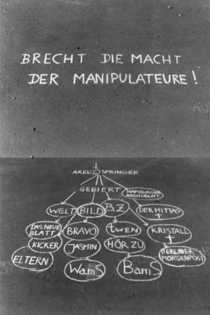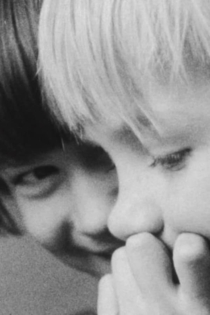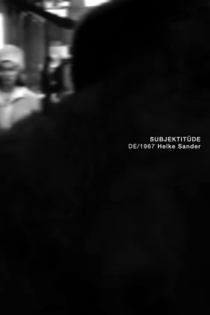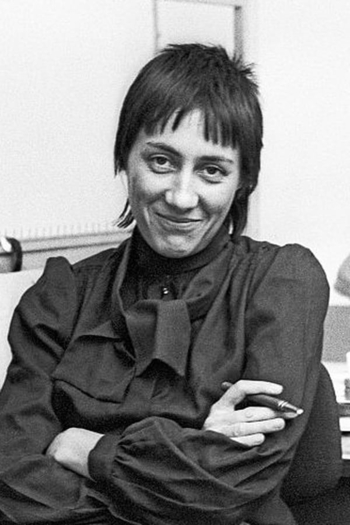
Helke Sander
1937 (89 лет)3000 Häuser
Hartmut Bitomsky, Ulrich Knaudt
Harun Farocki, Hartmut Bitomsky
“Six young people move through a city in order to establish the starting point of their joint action. But they can’t agree on the topic. In the end everybody goes their own way and leaves the city.” - Hartmut Bitomsky
3000 Houses
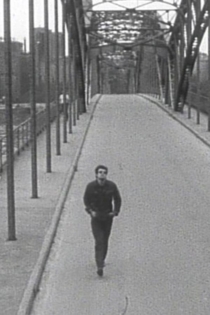
Der subjektive Faktor
Helke Sander
Angelika Rommel, Nikolaus Dutsch
At the end of the 1960s a young woman lays the foundation of the women's movement. As well as political initiatives against male dominance, a detailed picture is drawn of society, which establishes the women’s motivation.
Der subjektive Faktor
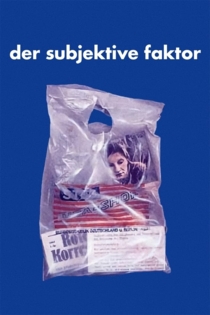
A Bonus for Irene
Helke Sander
Gundula Schroeder, Sarah Schumann
In a critique to the Berliner films that depicted labour problems always through masculine lens, Sander changes the point of view. Irene, single mother, works in a washing machine factory and has to deal with discrimination, sexual harassment and lack of solidarity.
A Bonus for Irene
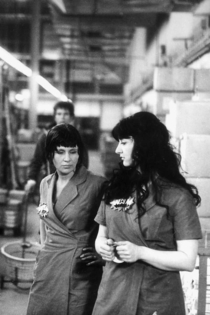
Nr. 5 - Aus Berichten der Wach- und Patrouillendienste
Helke Sander
Nina Franoszek, Jochen Baumert
The 2nd of three self-contained shorts by Helke Sander from her series of shorts entitled From the Reports of Security Guards & Patrol Services.
From the Reports of Security Guards & Patrol Services - Part Five
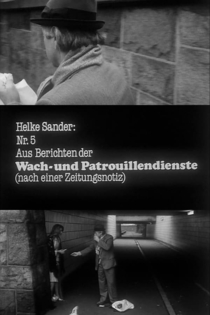
Die Deutschen und ihre Männer - Bericht aus Bonn
Helke Sander
Renée Felden, Helke Sander
A documentary with fictious elements. Ms. Elisabeth (Lieschen) Müller from Austria comes to Bonn, Germany to find herself a man. During the search she investigates the connections between neckties, political power and prostitution, and tries to look for the influence the german feminist movement had on the men in Germany's capital.
The Germans and Their Men
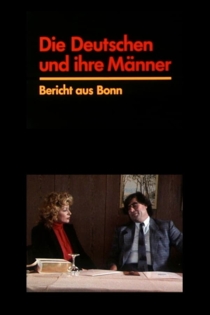
BeFreier und Befreite
Helke Sander
Helke Sander
Helke Sander interviews multiple German women who were raped in Berlin by Soviet soldiers in May 1945. Most women never spoke of their experience to anyone, due largely to the shame attached to rape in German culture at that time.
Liberators Take Liberties
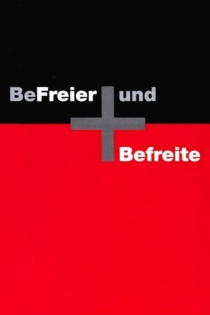
Une jeunesse allemande
Jean-Gabriel Périot
Harun Farocki, Philip W. Sauber
At the end of the 1960s the post-war generation began to revolt against their parents. This was a generation disillusioned by anti-communist capitalism and a state apparatus in which they believed they saw fascist tendencies. This generation included journalist Ulrike Meinhof, lawyer Horst Mahler, filmmaker Holger Meins as well as students Gudrun Ensslin and Andreas Baader.
A German Youth
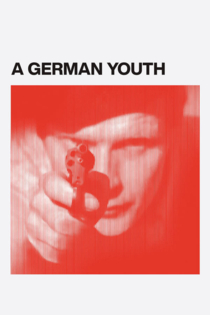
Nr. 1 - Aus Berichten der Wach- und Patrouillendienste
Helke Sander
Silvia Klaas, Nina Franoszek
A woman threatens to jump off a crane with her two young children in order to secure affordable housing. Won Golden Bear for Best Short at the 1985 International Film Festival Berlin.
From the Reports of Security Guards & Patrol Services – Part One
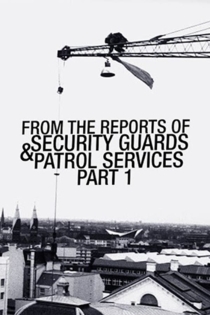
Unsichtbare Gegner
Valie Export
Susanne Widl, Peter Weibel
Anna, an artist, is obsessed with the invasion of alien doubles bent on total destruction. Her schizophrenia is reflected in the juxtapositions of long movie camera takes with violently edited montages: private with public spaces; black & white with colour, still photographs with video, earsplitting sounds with disruptive camera angles. Anna uses her body like a map; after a devastating quarrel with her lover, she paints red stitches on herself. Watching their scenes together, we realize how seldom, if ever before, the details of sexual intimacy have been shown in film from the point of view from a woman. Export privileges rupture over unity and never settles for one-dimensional solutions
Invisible Adversaries
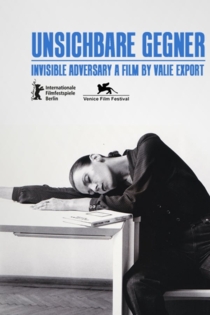
Ihre Zeitungen
Harun Farocki
Harun Farocki, Helke Sander
Ihre Zeitungen is a political film rooted in the 1968 student campaign against the Springer press group, which controlled popular dailies such as the Berliner Zeitung and the Bild Zeitung. Claiming the latter were manipulating public opinion, the students laid siege to the publisher's offices. These events made a strong impression on the German collective conscience, and it's in this context that Farocki made this "agit-prop" film.
Their Newspapers
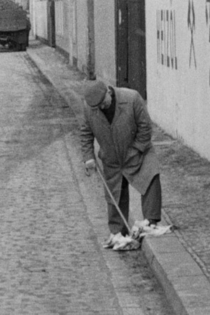
Die allseitig reduzierte Persönlichkeit - Redupers
Helke Sander
Helke Sander, Joachim Baumann
Edda Chiemnyjewski, a freelance press photographer and single mother living in 1970s West Berlin, is confronted with the fact that "a cook has no time for affairs of state". She also fails to find a market for the project she has been working on with her women′s photography group that seeks to document the city. While from today′s perspective the city, which becomes one of the film′s protagonists, looks like post-war Berlin, little has actually changed as regards the precarious existence of free-lancers. With a heavy dose of self-irony Helke Sander, who also plays the leading role, tells of a divided life in a divided city.
The All-Around Reduced Personality: Outtakes
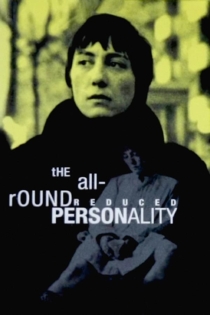
Farbtest - Die rote Fahne
Carlos Bustamante, Helke Sander
Hans Behringer, Gerd Conradt
Gerd Conradt films men carrying a red flag in a relay race through Berlin, to hoist it on the balcony of the current Mayor’s seat. A cinematic experiment based on Eadweard Muybridge, Andy Warhol and New American Cinema. A study in men, movements and a symbol. This is the 7th part of this series of film exercises. The other 6 parts were staged by Harun Farocki (Part 1), Carlos Bustamante (Part 2), Helke Sander (Part 3), Holger Meins (Part 4), Wolfgang Petersen (Part 5), Philip Werner Sauber (Part 6).
Color Test: The Red Flag
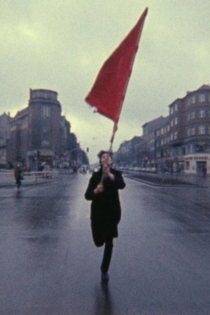
Nr. 8 - Aus Berichten der Wach- und Patrouillendienste
Helke Sander
Dinko Bogdanić, Burghart Klaußner
Here is the third and last of three self-contained shorts by Helke Sander from her series of shorts entitled From the Reports of Security Guards & Patrol Services . BTW the numbering of the parts is a bit confusing, the only existing parts of the series are No. 1,5 and 8.
From the Reports of Security Guards & Patrol Services – Part Eight
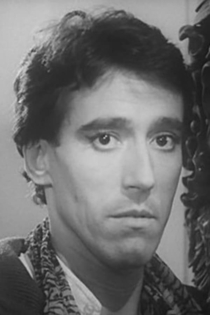
Brecht die Macht der Manipulateure
Helke Sander
Christian Ziewer
Documentary by Helke Sander, in collaboration with Harun Farocki (among others), about the campaign of the West German New Left against the publishing house Springer, particularly its control and manipulation of the news.
Break the Power of the Manipulators
